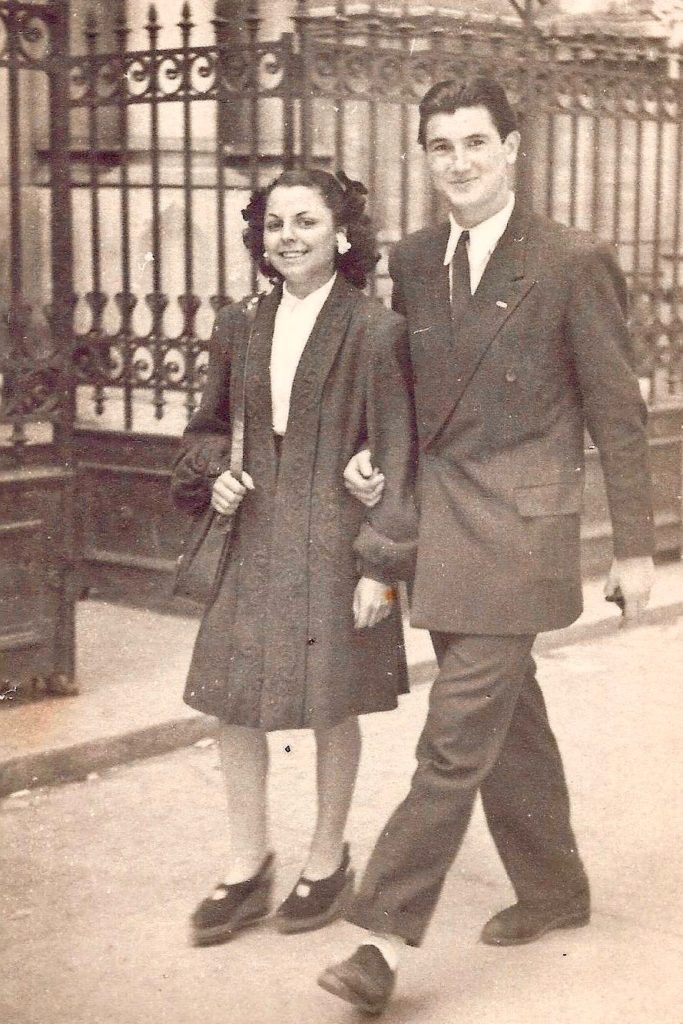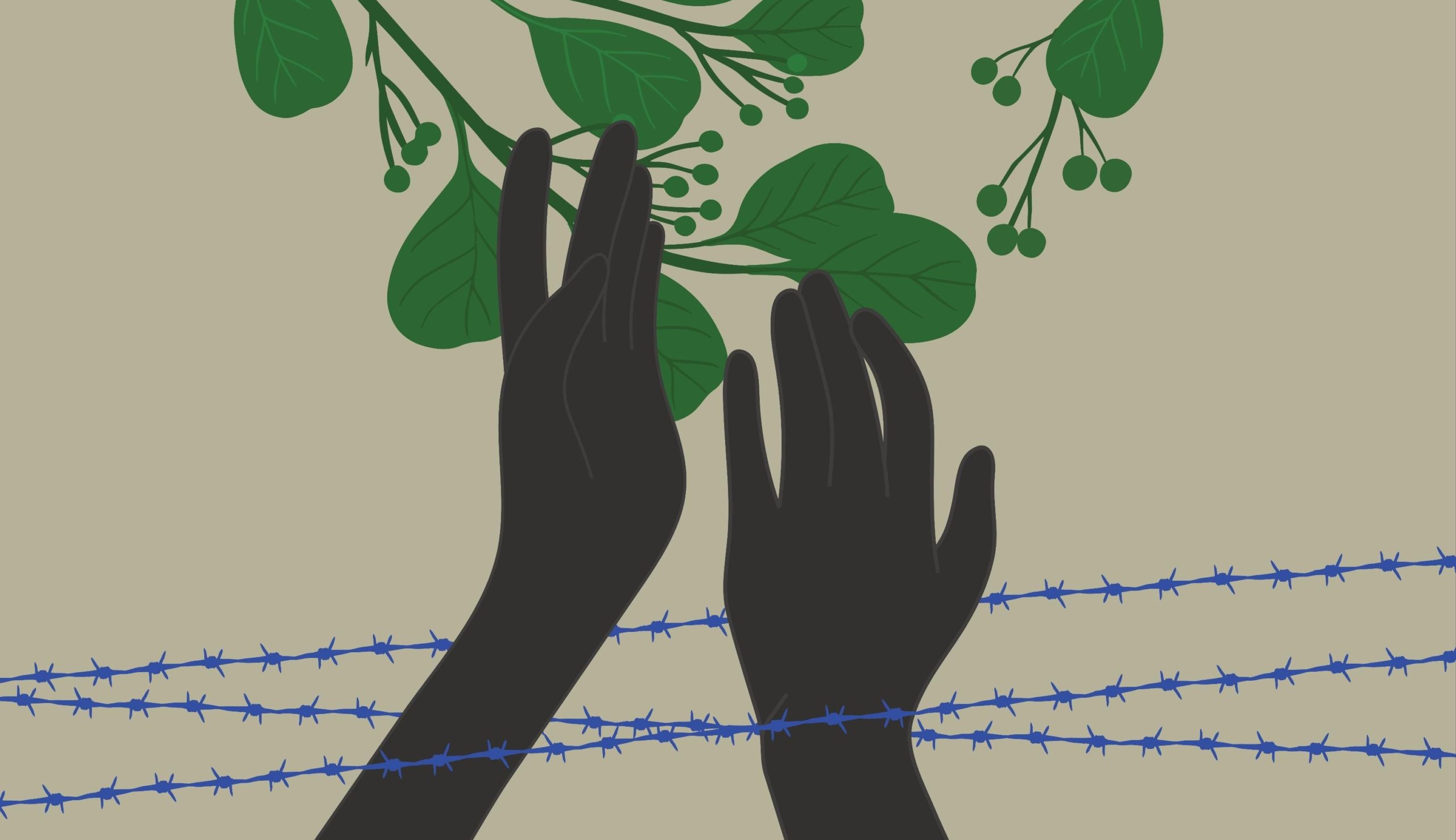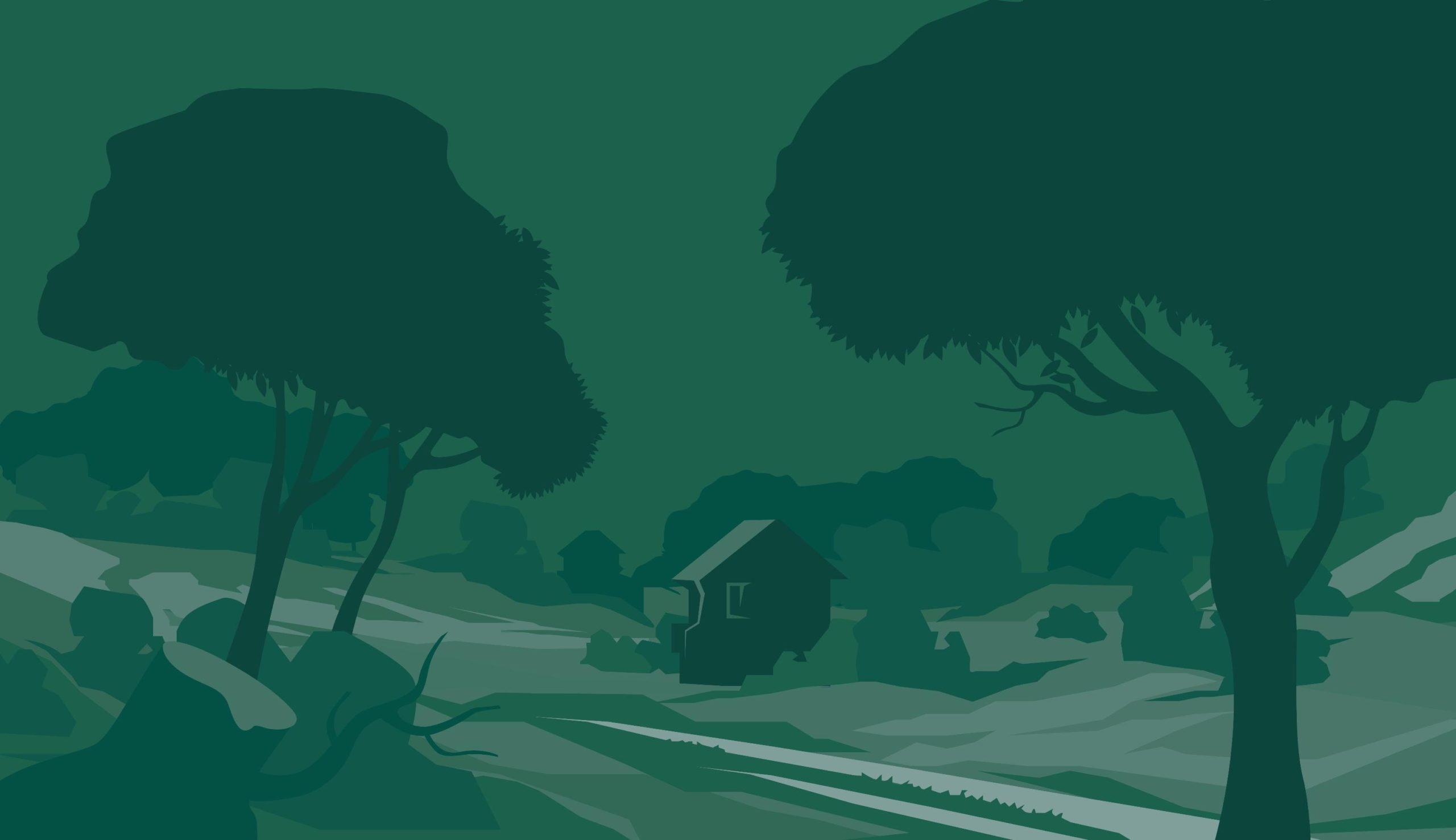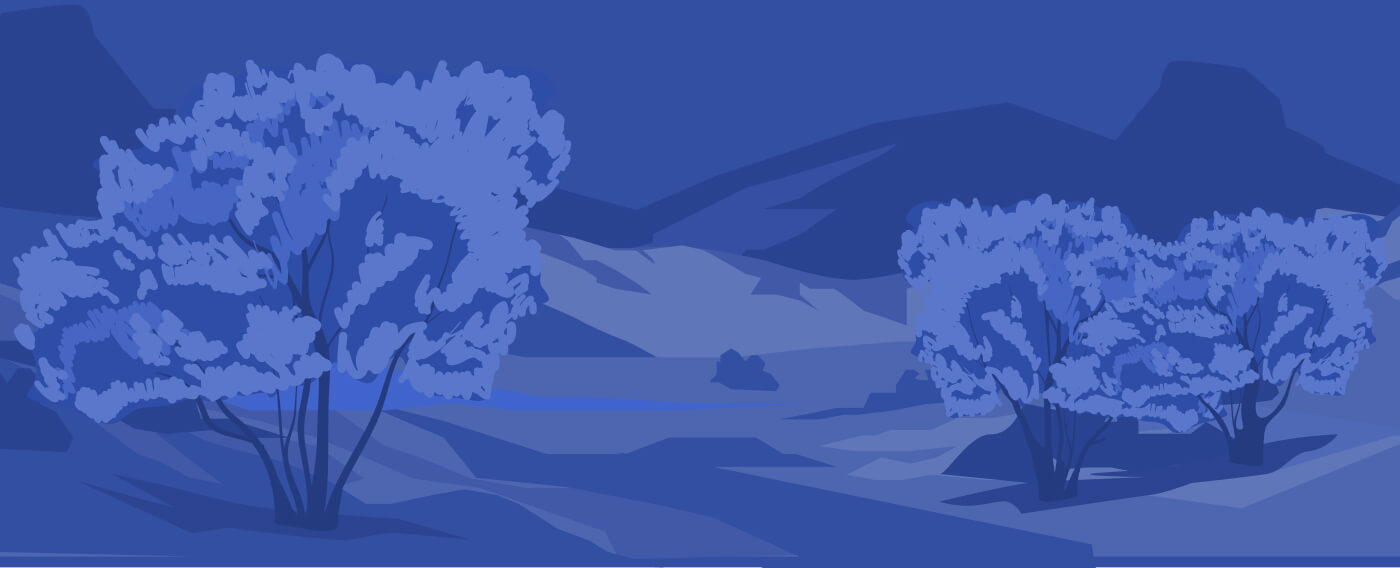I was 18 years old...
I was 18, a wonderful time in life. I was a zazou. Like others, I was in school, living a peaceful life with many friends. My father worked in finance, he ran his own company. He played bridge with the local prefect, Angelo Chiappe, and was treasurer of the Nîmes sporting club. I wanted to become a lawyer.
On 11th November 1942, the Germans occupied the entire territory of France. After being implemented only in the North of the country, racist and anti-Jewish laws were now generalised. It became mandatory to wear the yellow star. Some jobs were forbidden to Jews across France. My father was no longer allowed to work. Our ID cards were now stamped with the word JEW.
From 24th October 1940, following a meeting between Marshal Pétain, head of the French State, and Adolph Hitler, leader of the German Nazi Party, France officially became a collaborating state. Jews suffered daily from relentless humiliation and harassment; the police and justice systems were now serving the new order. This was when the arrests and raids began.
In Nîmes in 1942, authorities had told my father: “We can no longer guarantee the security of your people, but you and Mr Horviller’s family have nothing to worry about, you are protected by the numerus clausus”. Indeed, we were known as “good Frenchmen” – we had received the silver Medal of the French Family, and my uncle, Fortuné Ben Attar, had gained recognition as the youngest artilleryman in France. He even owned a small embroidered pouch given to him by the Queen Mother.
I was 18 and I wanted to become a lawyer.

, and their mother Sarah
On 17th September 1943, everything changed. While dining at home with my uncle Lazare, my father’s brother, and my aunt Bellyne, his wife, I heard the sound of heavy boots on stairs. I realised they were coming to arrest us. I wanted to make a run for it across the rooftops, but I chose to stay with my family. We tried to escape by taking the corridor up to the attic. Unfortunately, the members of the Gestapo, who were there along with the Feld Gendarmerie, heard voices and came to arrest us in the corridor. They ordered us to follow them and gave us 10 minutes to pack our bags.
The day before, Marcel Lacassagne – with whom I played football before the war and to whom I no longer spoke since he was engaged in the collaboration and a member of the Croix de Feu (Nazi Party) – had invited me for a drink at the Caveau, a local bar I frequented every day with friends. I didn’t respond. To this day, I don’t know what his intentions were… Did he simply want to see me, gleefully knowing I was to be arrested, or did he want to warn me?

I was now 19, and the horror was beginning.
We were all arrested, sent to the Nîmes military base, and put in a shared cell. While leaving Nîmes train station, my sister threw a letter to the ground, informing whoever read it that the Ben Attar family (well known in Nîmes) was departing for an unknown destination. That same day, we were escorted by the soldiers of the German Feld Gendarmerie to the Saint-Pierre prison in Marseille, where the men and women were separated. The next time I saw my mother and sisters was on 25th September, the day we left for Drancy.
On 27th September, the convoy carrying my family arrived in Drancy. There, we remained together in a block occupied by about 40 people – not too bad. We slept on the floor, on straw mattresses. Unaware of what was to come, we felt relaxed, no longer constantly fearing arrest. We could not have known what the future held in store for us…
At that time, the writer Tristan Bernard was also being held in Drancy. He was the only one in the whole camp allowed to wear a beard.
On 7th October 1943, we departed for an unknown destination. Convoys were organised in cattle cars, in which 100-120 people were crammed. The trip lasted 4 days. There were 1000 of us travelling in convoy number 60: 564 men and 436 women and children (108 under the age of 18).
The descent into Hell
On 11th October 1943, I arrived with my father, my mother, my two sisters, and my uncle and aunt, in an unknown place. Upon arrival, we were separated by force, hit with batons, men on one side, women on the other. I didn’t have the chance to say goodbye or kiss my mother or sisters. We learned that we had arrived in Auschwitz-Birkenau, Poland. A quick selection on the train platform mercilessly sealed everyone’s fate.
SS majors took 166 women and 340 men, sending them to different camps in trucks. With my father and uncle, we were sent to Monowitz, next to Auschwitz. The rest of the convoy, 491 people, were sent to the gas chambers and immediately killed. This, I did not know at the time, and I couldn’t have conceived of it…
In Monowitz, as soon as we got out of the trucks, the SS soldiers stripped us down. All our luggage and belongings were taken from us. Our heads and bodies were shaved and we were disinfected with DDT.
Then, we were tattooed, and my number was engraved on my left arm: 156977My father’s: 156976. My uncle’s: 156978. I learned my number in German (Eins, Fùnf, Sechs, Neun, Sieben, Sieben) and in Polish – these numbers still resonate in my mind and haunt my dreams. I became a number.
We were given a blue-and-white striped uniform and clogs. We had to wear a badge. I went to register at the “Politburo”. When asked, “what’s your job?”, I answered “Kucker” (cook), thinking I could be assigned to the kitchens… The next day, I was set to work levelling the ground.
Very soon, I became familiar with the dreadful reality of the camp: a prisoner was beaten up by an SS soldier while trying to “reason” with him: “I’m tired, I can’t work anymore” Paralysed by fear and faced with the brutality of the SS soldier, this man ended up dying from the repeated blows of the soldier’s boot.
I now understood that my " “show-off” nature had to be put aside. I began implementing what I called“Operation Survival”, the aim being to fully adjust to the situation I faced in order to achieve one thing: survive to tell the tale. Paradoxically, I decided to live from day to day and adopt this motto: in the morning – “I look forward to sleeping tonight”, and in the evening – " “That’s one more day over”.
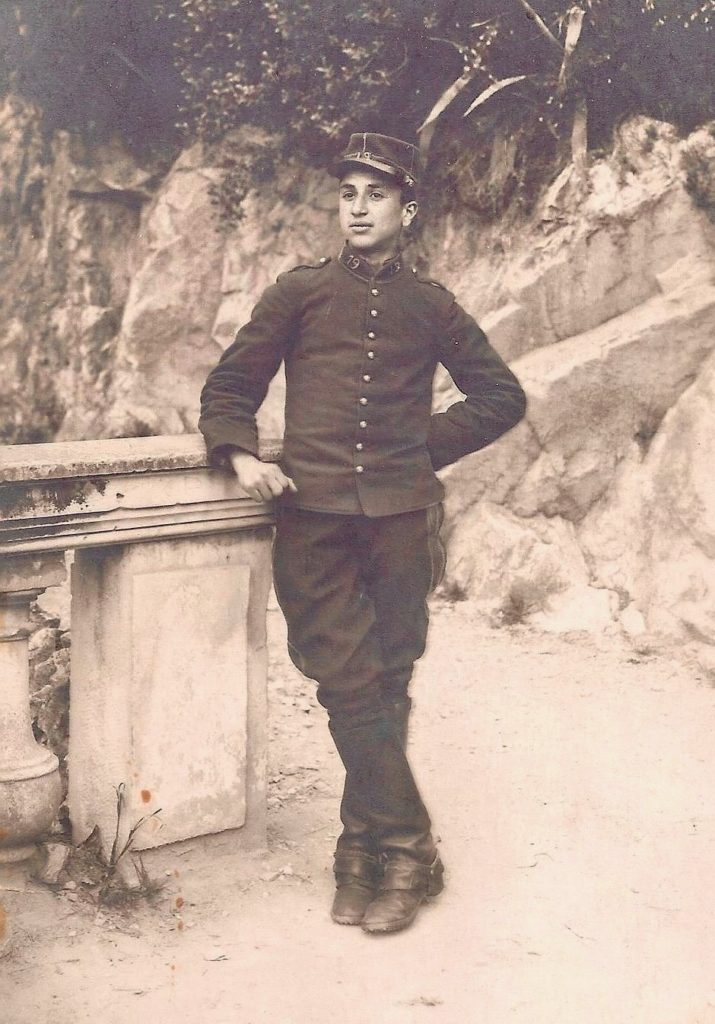
Man swap
One day, a kapo from another commando asked if there was a prisoner from Nîmes among us. I answered in the affirmative. He swapped me with one of his men and took me with him to another work site, where I found men from the Nîmes Compulsory Work Service (an organisation in France that forced the enlistment and deportation of hundreds of thousands of French workers to Nazi Germany to work as forced labour). I knew these men. Prisoners like me, they had been working on a construction site nearby.
When they recognised me, they embraced me warmly. I saw them every day and they brought me a bit of food, which I could then share with my father and uncle who lived in the same tent as me.
Nearby, there were some English prisoners with whom we exchanged cigarettes when we met to go “take a piss”.
In the Monowitz camp, I contracted diphtheria. I was sent to the contagion ward in the hospital, where I stayed for 4-5 days. I ate rice flour soup. My father visited often and I gave him bread. The doctor who took care of me was named Cuenca. He was a Greek Jew who could speak French. One morning, a collective departure was organised from the hospital. All the inmates were sent to another location. It was 11th January 1944. I was never to see my father or uncle again.
Auschwitz
I arrived at Auschwitz (Poland), near Monowitz. In the camp, we were under the orders of common-law prisoners from Germany. All the inmates wore striped uniforms and a triangle badge of different colours , bearing the first letter of their country of origin. There were approximately 30 SS soldiers per camp. All the functions followed a strict hierarchy and were organised as follows: Camp Chief, Kommando Chief, Room Chief, Block Chief, Kapo. The SS were only in contact with kommando and block chiefs.
In Auschwitz 1, the big camp, I was in a rather large brick block, with running water and a bathroom.
“Ein lots, tein todt” (one louse and you’re dead)was the block’s motto. We were responsible for our hygiene. We had to find soap and above all keep our scalp clean. If the SS found any dirt, they would beat us black and blue, sometimes beating us to death.
We would trade with the men in the kommando charged with sorting the inmates’ personal belongings. I had the occasion to go to these huge buildings named “Canada”. I saw mounds of glasses, prosthetics and shoes piled against the wall. That’s where I took a pair of leather shoes. It was where all the belongings of inmates were stored, as well as everything the SS took from the bodies of men, women and children they killed: hair, teeth, etc.
The inmates from this kommando, also called “Canada”, would come back every night after a strict search. But sometimes, one of them managed to bring something back: a shirt, a jumper, a pair of shoes, a spoon, a fork, a watch, etc. We called this “organisation”.
A day in the camp
In the morning, we would wake up and the room chief would tell us, " get up, make up your bed and go wash up”. Then, we would drink a “grey tea” in place of breakfast, before going out to stand in line for the never-ending roll call – in the rain, cold, snow, sometimes all at once. The SS would count us and we would then leave for work. One kommando was made up of 500 inmates. A kapo led 100 inmates, the under-kapo led 50 inmates, and the supervisor (“von arbeiter”) led 10 inmates. The whole kammando was led by an SS soldier who walked in front.
I worked in a construction material centre for the Wafen SS and the German police. We unloaded wagons filled with different material (bricks, beams, bags of cement), which we carried on our backs. On the way back, we ran. One day, an SS thought that I didn’t run fast enough and shouted: " Scbnell Menscb " (faster, man) while beating me with a baton. I remembered then the death of the inmate in Monowitz... I avoided the first hit, the SS called me back, I took the second hit then moved away, again and again. I took the beatings without uttering a word, but I kept moving so that I could get a break between hits. It helped save my life. Most inmate killings I witnessed took place during work kommandos.
At noon, we would stop to " manger "The miskas (bowls) were made of red enamel. The ladles that the kapos used to serve our rations could contain one litre, but they were rarely filled up. Once the distribution was over, and the chiefs well fed, the kapo shouted
" Répéta " (extra) and all the inmates ran in an attempt to obtain a quarter-ladle more. But again, in the rush, there would be beatings from all sides. So to avoid them, I stayed back, focusing on my portion. In the evening, back in the camp, the kapos would do another roll call to check that no one had escaped. All those who had left in the morning needed to be in the ranks. So we stood there among the bodies of those who had died that day. Once the roll call was over, special kommandos took the bodies to the ovens.
I knew quite quickly that there were crematoria in Auschwitz-Birkenau, because the SS would often threaten that if we didn’t work enough, we would go to the ovens the next day. But I didn’t know that entire train-loads of people were gassed upon arrival. I found that out much later.
During the roll call, and to set an example, men who tried to escape were hanged in front of us. They were mainly Polish inmates who had already been ravaged by dogs.
Surviving
As part of Operation Survival, the aim was to not stand out. I was reduced to a number by the concentration camp’s organisation and labour. I wanted to make it out, so I thought only about myself. When I thought of my family, I didn’t imagine we would meet again after the war. In the camps, the Germans killed through beatings, hunger, cold, and work. You had to do what you could to survive.
In the evening, after the roll call, we would gather in groups. I was with a group of French men (Communists and Jews). We would talk mainly about food. Once, an inmate came back with a French cigarette, and 20 of us puffed on it. At night, we had to stay in our blocks. It was forbidden to go out after dark.
Some kammandos worked on the outside with “Zivic Arbeiter” (civilians). That’s how we found out about military advances and the war’s progress. This information would give us some hope. News about two major events quickly spread through the camp: the killing of Philippe Henriot and the Normandy landings of 6th June 1944.
Several times, I stayed at the “Krankenhaus”, where patients were treated by inmate doctors. One of them, Dr Garfunkel, warned me several times of upcoming selections of sick people for the gas chambers. I would then quickly leave to rejoin the kommando. In the autumn of 1944, I was placed back in my original Bahnhof kommando.
But that kommando, which had previously counted 600 inmates, was now far smaller. I found myself in a kommando with about 30 inmates. They were mainly German or non-Jewish Poles who received packages from home. Many of them didn’t touch their soup and would give me their portion.
At that time, the Germans were massively deporting Hungarian Jews: between 300,000 and 400,000 people were sent to the camps. The Hungarians brought provisions including large quantities of instant soup, which was incidentally called “Hungarian soup” at that time in France. The Germans would use these provisions to cook the camp’s soup.
The long walk of death
On 18th January 1945, we were evacuated from Auschwitz by the Germans, pushed onto the road at temperatures of -20°C. We received a roll of bread, half a “wurst” (a sausage made up of 75 % water), a piece of “ Kà'se” (a 10-12% fat cheese) and one cotton blanket. We walked in groups of 100 and rows of 5, led by 2 SS soldiers. We walked for 55 minutes, rested for 5. The first night, we slept in a field of snow. I wrapped myself in my blanket, and in the morning I had to tear it apart because it had frozen. I left it there. I didn’t even get sick.
The line of prisoners was never-ending. There were 30,000 of us. This horrible march lasted for 4 days. To eat, we would take food from the dead. To quench my thirst, I ate snow. When men fell to the ground, they were immediately shot dead by the SS. During the last kilometres, friends helped me to walk, I could no longer see anything. Like all the survivors, I arrived at the camp of Gross-Rosen, near the Polish border, 60km from Breslau (currently Wrocław), on 21st January 1945. The camp was built to hold 10,000 prisoners and now had to accommodate 30,000 inmates. We were crowded into multi-level blocks and had to scramble to get some liquid they called soup.
On the first day there, I managed to get a political prisoner badge for myself. It was a red triangle, without a yellow triangle on top, on which I wrote my prisoner number: 156977, and the letter F.
From then on, I was no longer a Jew but a French political prisoner. I was glad I did this because on 12th February, the camp was evacuated in two groups: 1) Jews 2) Others.
No longer considered a Jew because of my new badge, I was evacuated with others towards Dora, in Germany. The evacuation was done with open-platform wagons. Fifty of us were loaded onto the wagon, and only 26 survived. During this long trip that lasted several days, we were given bread only once. The German railway workers gave us warm water from the engine. We arrived in the Dora Mittelbau camp, located in the Harz hills, near Nordhausen, on 18th February 1945. I didn’t work during my stay in Dora. We were placed in quarantine. On 18th February, we were once again evacuated towards Nordhausen, where I stayed until 4th April 1945.
Nordhausen was bombed on Tuesday 3rd and Wednesday 4th April by the American airforce. I was there. More than 2,500 people were killed, and I was still there. At 3 pm, the SS grouped us into ranks of 5 for a new evacuation towards Bergen-Belsen. But by then, I didn’t want to go.
I won't go
I didn’t want to go so I decided I wouldn’t leave. I couldn’t go on. I told myself: “If I must die, let me die here, I’m exhausted " I hid under corpses among the debris and waited for silence. The camp emptied out, everyone left, including the SS. In the middle of the night, I left my hiding place, got up and ran towards the town. There, I hid in the cellar of a house that was just about standing. I survived like that for eight days, eating raw carrots and potatoes that I found in the cellar.
I later learned that of the 2,500 prisoners from Nordhausen whom I refused to follow, only 172 survived.
One day, it was Wednesday 11th April 1945, through the peephole I saw groups of civilians walking off, then I heard the singing of two inmates wearing striped uniforms. They were staggering, arms linked, they were drunk. I left my cellar and said to them: “Ruhe, ruhe ". They answered:
“All sind Kaput, Americaner sind zwei bundert meters " (They’re all dead, the Americans are 200 m away). Hearing that, I ran faster than I had ever run before towards the Americans.
When they rescued me, on 11th April 1945, they directed me towards the Nordhausen hospital, next to the airfield. There were approximately 5,000 people there to repatriate. A number was given to us according to our order of arrival. I think I was somewhere around 4,500. There were people from the Compulsory Work Service, camp inmates and wounded soldiers.
At that time, when they were just starting to repatriate people, the Americans were using 10 planes with 25 seats, flying people back each day. That meant 250 people leaving per day. We ate from the Americans’ food packages. Like many others, I contracted an acute dysentery, so I stayed several days eating “coal” to get better. I saw people throw themselves on the food and die of dysentery. On 21st April, when the 250 men were called to be repatriated, one man was missing. His name was called at least 10 times through the loudspeaker. At that point, I rushed forward claiming to be that man. That’s how I got back to Paris at 3 pm, on 21st April 1945, three weeks before the Armistice. Had I waited my turn, I would probably have arrived back one or one and a half months after that.
When Hell stops
That was when I began hoping to see my parents and my sisters again. Then, maybe only my sister Mathilde, who always seemed so strong in my eyes. Soon after, I realised that I would never see any of them again.
April 1945, my liberation.
I married Simone Calef in 1946. We had five children: Monique-Sarah, February 1947; Thierry-Aaron, January 1948; Fabrice-Yves, May 1951; Béatrice-Mathilde, May 1952 and Hélène-Bellyne, March 1955.
It took me years to retrace my life in the camp and to be able to talk about my life before the camp. A sort of amnesia had taken over, an amnesia that saved me and mended me, that allowed me to think that my life began in 1945, that I had been reborn.
